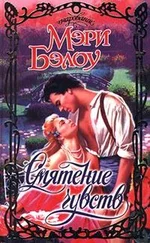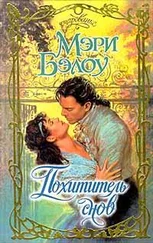“I could cancel the outing without suffering any great disappointment,” she said. “But I believe it would be better, Gabriel, to go and to take Jessica with us.”
“An excellent idea,” he said after a moment’s thought. “I will call upon the dowager and inform her of the slight change in plan and the reason for it.”
“Gabriel,” she said as he took his hat and gloves from Horbath, “you will remember, will you not, that all life is sacred, even that of a miscreant?”
“I will remember,” he told her, looking steadily at her. “He will not die at my hands, Mary, and I cannot take the risk of dying at his. Much depends upon my staying alive, at least for a while.”
No, he could not challenge Manley to a duel. As had been pointed out at breakfast, that would give Manley the advantage of having choice of weapons. And Manley had grown up with a gun in his hands. Gabriel, on the other hand, had not. Anyway, a duel was an affair of honor between two gentlemen. Manley did not deserve a duel. Gabriel regretted even mentioning it now, but it had been in the heat of anger.
He called upon Jessica’s grandmother and great-aunt and gave them a brief summary of the morning’s meeting. He discovered from them exactly where they planned to go with Mary and at approximately what time they expected to arrive at each place. And he told them he would be obliged to them if they would stay away from Hyde Park.
“We will certainly do so,” the dowager assured him, giving him a hard look. “But do remember, Gabriel, that in a duel it is just as likely that the aggrieved party will be shot dead as the offender. I would not wish to see my granddaughter widowed so soon after she has become a bride.”
“There will be no guns, ma’am,” he assured her, “and no shootings. No deaths.”
“I am almost sorry to hear it,” she told him. “But go now. Edith and I need to get ready for a day of pleasure.”
He went to Sir Trevor Vickers’s house next. Bertie had told him at breakfast that his mother was going to call upon Mrs. Rochford this morning.
She had indeed gone and was already back home.
“She received me, Gabriel,” Lady Vickers told him after she had asked about Jessica and been assured that she was recovering from her swoon and was in very good hands. “I sympathized with her over the ordeal she suffered last evening. My sympathy was genuine. She thanked me profusely for calling on her. No one else has. Not yet, anyway. Perhaps later. But that may be too late. I went mainly because I felt dreadfully sorry for the woman last evening. But I went also because both Trevor and Bertie felt that you needed to know if Mr. Rochford plans to leave London in a hurry to avoid any further inquiry into his own behavior all those years ago. And yes, Gabriel. Although there was nothing in the hall downstairs to suggest an imminent departure, upstairs in Mrs. Rochford’s sitting room, where she received me, there was a pile of packed trunks and bandboxes outside what must have been her dressing room. And I could hear activity inside there all the time we spoke. I do believe they are planning to leave tomorrow or even perhaps today.”
“Thank you, ma’am,” he said, taking both her hands in his and squeezing them.
She sighed. “Why is it,” she asked him, “that it is always the women who suffer? Do not make your wife suffer, Gabriel. She is far too young to be a widow.”
“I do not know what Bertie has told you,” he said, “but there will be no pistols at dawn, I assure you, ma’am. Or at any other time of day either.”
“Just remember,” she told him, “that only you stand between him and the earldom he has so craved, Gabriel. Watch yourself. Please.”
“I will.” He kissed the back of one of her hands.
Bertie went with him when he left the house. They proceeded to Archer House, as planned hastily when Gabriel was carrying Jessica from the private parlor at the hotel. While Bertie was shown into Netherby’s study, however, Gabriel was asked to step up to the drawing room, where Anna and Jessica’s mother were awaiting him.
“Jessica will be fine,” Gabriel assured them before they could even ask. “She was conscious before I left, and she is in excellent hands. Her maid is very competent, as I am sure you know. And Mary has healing powers that extend to all living beings.”
“Jessica is not a deer or a horse,” the dowager duchess said tartly. “But Ruth I know I can depend upon. I have never known Jessica to faint. I daresay the prospect of your being shot dead in a duel was too much for her sensibilities. I suppose she cares for you.”
She was on the verge of tears, Gabriel could see, but like her daughter—on most occasions—she had herself well under control and looked every inch the duchess.
“And I care for her,” he said. “There will be no duel. No pistols. No deaths.”
“There is a veritable army of Westcotts downstairs in Avery’s study,” Anna told him. “ We have been excluded, of course. We are mere women.”
“One woman fainted this morning, Anna,” her mother-in-law reminded her, “because she was included and realized there was a possibility that her husband of less than a week could have his brains blown out before today ends.”
“But as Avery pointed out to us when we got home, Mother,” her daughter-in-law said, “Gabriel cannot afford to die just yet. If Mr. Manley Rochford could avoid prosecution, he would become the Earl of Lyndale after all, and that is unthinkable.”
“Hmph,” the dowager said. “You had better go down and join them, Gabriel. They are all doubtless bristling with ideas. But I will tell you this. That man deserves to be strung up by his thumbs.”
“I will keep it in mind,” Gabriel said, and he grinned at them—Jessica’s mother and her sister-in-law—before he left the room and went downstairs.
Good God! Every man who either was a Westcott or had some familial connection to them must be in the study. Plus Bertie. In addition to those who had been at the breakfast meeting, there were Colin, Lord Hodges; Molenor’s sons, Boris and Peter Wayne; Dorchester’s son, Bertrand Lamarr; and Dirkson’s son, Adrian Sawyer. All of them grim faced.
“They are packed and ready to leave,” Gabriel told them after nodding his greeting to the group.
“My men on the morning shift are keeping a close eye,” Netherby said. “No actual movement yet.”
“He has been thoroughly humiliated,” Hodges said. “And masterful choreography there, may I add, Lyndale. But he has probably concluded that it is unlikely he is facing imminent arrest. He is not likely to be convicted upon a thirteen-year-old rape charge, after all. As Elizabeth pointed out to me last night, it rarely happens. Enough doubt will be cast by any defense lawyer worth his salt to suggest that the encounter was consensual or that the woman lied about the identity of her assailant. As to murder, well, all the evidence is purely circumstantial. Unfortunately. There were no witnesses.”
“Proving Lyndale innocent is the easy part,” Dorchester said in full agreement. “Proving Rochford guilty is virtually impossible. Even his false claim to have seen Lyndale commit the murder can be explained by the fact that he was observing from a distance and was simply mistaken. His urging of Lyndale to flee can be explained by familial fondness.”
“We know what cannot be done, Marcel,” Lord Molenor said. “But what can be?”
“He cannot be allowed to go completely free,” Dirkson said. “Even though he would probably die of disappointment and live in abject misery until then. The whole business cries out for some sort of justice.”
“I plan to beat the stuffing out of him,” Gabriel said. “For what he was about to do to Mary Beck. For what he has already done to a number of the faithful servants at Brierley. For what he did to Penelope Clark. For what he did to Orson Ginsberg.”
Читать дальше












